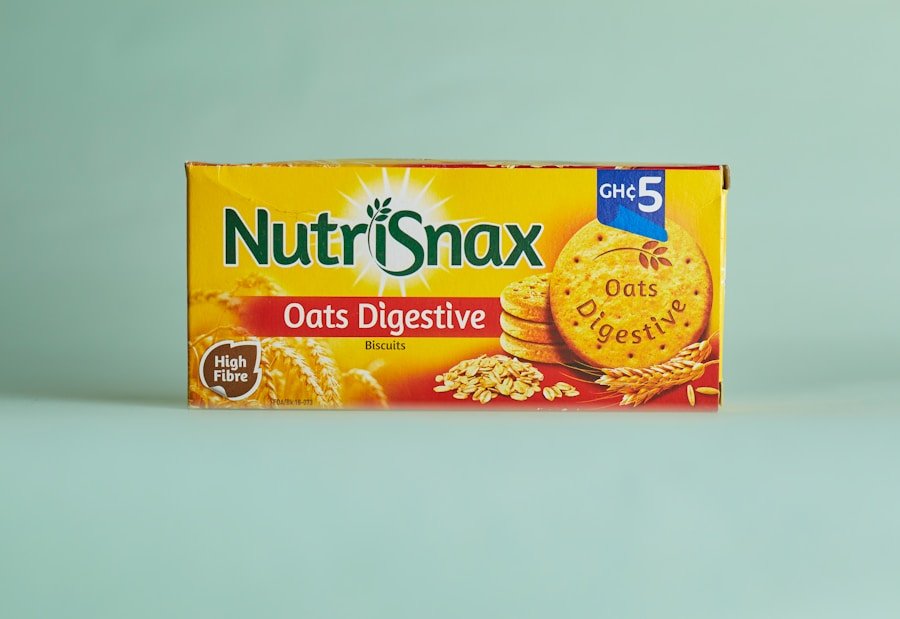Probiotics are live microorganisms that, when consumed in sufficient quantities, are thought to confer health benefits. These microorganisms, commonly referred to as “good” or “friendly” bacteria, contribute to the maintenance of the natural balance of microflora in the intestines. The most prevalent types of probiotics belong to the Lactobacillus and Bifidobacterium bacterial groups, although certain yeasts can also exhibit probiotic properties.
Probiotics occur naturally within the human body, but they can also be found in specific foods and supplements. Foods rich in probiotics include yogurt, kefir, sauerkraut, kimchi, and miso. Probiotic supplements are available in various forms, such as capsules, tablets, and powders.
These supplements are often used to restore the natural balance of gut bacteria, particularly following antibiotic use or in cases of digestive issues.
Key Takeaways
- Probiotics are live bacteria and yeasts that are good for your health, especially your digestive system.
- Gut health is important for overall well-being as it affects digestion, immunity, and even mental health.
- Probiotics support gut health by restoring the natural balance of good bacteria in the digestive system.
- There are different types of probiotic bacteria, such as Lactobacillus and Bifidobacterium, each with unique health benefits.
- Incorporating probiotics into your diet through fermented foods like yogurt and kefir, as well as choosing the right supplement, can help improve overall health.
The Importance of Gut Health
The Gut’s Microbial Ecosystem
The gut is home to trillions of bacteria, comprising both beneficial and harmful microorganisms. These microorganisms play a crucial role in maintaining a healthy immune system and preventing disease.
The Consequences of an Imbalanced Gut
When the balance of bacteria in the gut is disrupted, it can lead to various health problems, including digestive issues, allergies, obesity, and even mental health disorders.
The Importance of Probiotics in Gut Health
Maintaining a healthy gut is essential for overall health. Probiotics play a key role in supporting gut health by helping to restore the balance of good bacteria in the gut and promoting a healthy digestive system.
How Probiotics Support Gut Health
Probiotics support gut health in several ways. Firstly, they help maintain the balance of good and bad bacteria in the gut. This balance is essential for proper digestion and absorption of nutrients.
Probiotics also help strengthen the intestinal barrier, which prevents harmful substances from entering the bloodstream and causing inflammation. Additionally, probiotics produce beneficial compounds such as short-chain fatty acids that help nourish the cells lining the gut and support overall gut health. Furthermore, probiotics have been shown to help regulate the immune system by promoting the production of antibodies and other immune cells.
This can help reduce the risk of infections and autoimmune diseases. Probiotics also play a role in producing certain vitamins and enzymes that are essential for overall health. Overall, the presence of probiotics in the gut is crucial for maintaining a healthy and balanced digestive system.
Types of Probiotic Bacteria
| Topic | Details |
|---|---|
| Definition | Live bacteria and yeasts that are good for your health, especially your digestive system |
| Types | Lactobacillus, Bifidobacterium, Saccharomyces boulardii, etc. |
| Sources | Yogurt, kefir, sauerkraut, kimchi, miso, tempeh, etc. |
| Benefits | Improves digestion, boosts immune system, may help with certain conditions like irritable bowel syndrome |
| Precautions | May cause mild side effects in some people, should be avoided in certain medical conditions |
There are several types of probiotic bacteria that have been studied for their potential health benefits. Some of the most common types include Lactobacillus acidophilus, Lactobacillus casei, Lactobacillus rhamnosus, Bifidobacterium bifidum, and Bifidobacterium longum. Each type of probiotic bacteria may have different effects on the body, so it’s important to choose a probiotic supplement that contains a variety of strains to ensure maximum benefits.
Different strains of probiotic bacteria may have different effects on the body. For example, some strains may be more effective at supporting digestive health, while others may be more beneficial for immune function. It’s important to choose a probiotic supplement that contains a variety of strains to ensure that you are getting a wide range of health benefits.
Benefits of Probiotics for Overall Health
In addition to supporting gut health, probiotics have been associated with several other health benefits. Some studies have suggested that probiotics may help reduce symptoms of irritable bowel syndrome (IBS), inflammatory bowel disease (IBD), and other digestive disorders. Probiotics have also been shown to help reduce the risk of certain infections, such as urinary tract infections and vaginal yeast infections.
Furthermore, probiotics may help support immune function and reduce the risk of allergies and autoimmune diseases. Some research has also suggested that probiotics may have a positive impact on mental health by reducing symptoms of anxiety and depression. Additionally, probiotics have been associated with improved skin health and may help reduce the risk of certain skin conditions such as eczema.
Incorporating Probiotics into Your Diet
Natural Sources of Probiotics
One of the easiest ways to incorporate probiotics into your diet is to consume foods that are naturally rich in probiotics. These include yogurt, kefir, sauerkraut, kimchi, and miso. These foods can be easily incorporated into meals or enjoyed as snacks to help maintain a healthy balance of bacteria in the gut.
Probiotic Supplements for Added Benefits
In addition to consuming probiotic-rich foods, you can also consider taking a probiotic supplement to ensure that you are getting an adequate amount of beneficial bacteria. Probiotic supplements are available in various forms such as capsules, tablets, and powders.
Choosing the Right Probiotic Supplement
It’s important to choose a high-quality supplement that contains a variety of strains of probiotic bacteria to ensure maximum benefits.
Choosing the Right Probiotic Supplement
When choosing a probiotic supplement, it’s important to consider several factors to ensure that you are getting a high-quality product that will provide maximum benefits. Firstly, look for a supplement that contains a variety of strains of probiotic bacteria to ensure that you are getting a wide range of health benefits. Additionally, choose a supplement that contains a high number of live organisms (colony-forming units or CFUs) to ensure that you are getting an adequate amount of beneficial bacteria.
It’s also important to choose a probiotic supplement that has been tested for safety and efficacy. Look for products that have been third-party tested for purity and potency to ensure that you are getting a high-quality supplement. Additionally, consider choosing a supplement that is shelf-stable and does not require refrigeration, as this can make it easier to incorporate into your daily routine.
In conclusion, probiotics play a crucial role in supporting gut health and overall well-being. By maintaining a healthy balance of bacteria in the gut, probiotics can help support digestion, immune function, mental health, and more. By incorporating probiotic-rich foods into your diet and choosing a high-quality probiotic supplement, you can ensure that you are getting an adequate amount of beneficial bacteria to support your health.
FAQs
What are probiotics?
Probiotics are live microorganisms, often referred to as “good” or “friendly” bacteria, that provide health benefits when consumed in adequate amounts. They are commonly found in fermented foods and dietary supplements.
What is the role of probiotics in gut health?
Probiotics play a crucial role in maintaining a healthy balance of gut bacteria. They help to support digestion, boost the immune system, and prevent the growth of harmful bacteria in the gut.
What are the sources of probiotics?
Probiotics can be found in a variety of fermented foods such as yogurt, kefir, sauerkraut, kimchi, and miso. They are also available in the form of dietary supplements, including capsules, powders, and liquids.
What are the benefits of consuming probiotics?
Consuming probiotics can help improve digestion, alleviate symptoms of irritable bowel syndrome (IBS), reduce the risk of certain infections, and support overall gut health. Some studies also suggest that probiotics may have a positive impact on mental health and skin conditions.
Are there any risks associated with taking probiotics?
In general, probiotics are considered safe for most people. However, individuals with weakened immune systems or serious underlying health conditions should consult a healthcare professional before taking probiotic supplements. Additionally, some people may experience mild digestive discomfort when first starting to consume probiotics.














